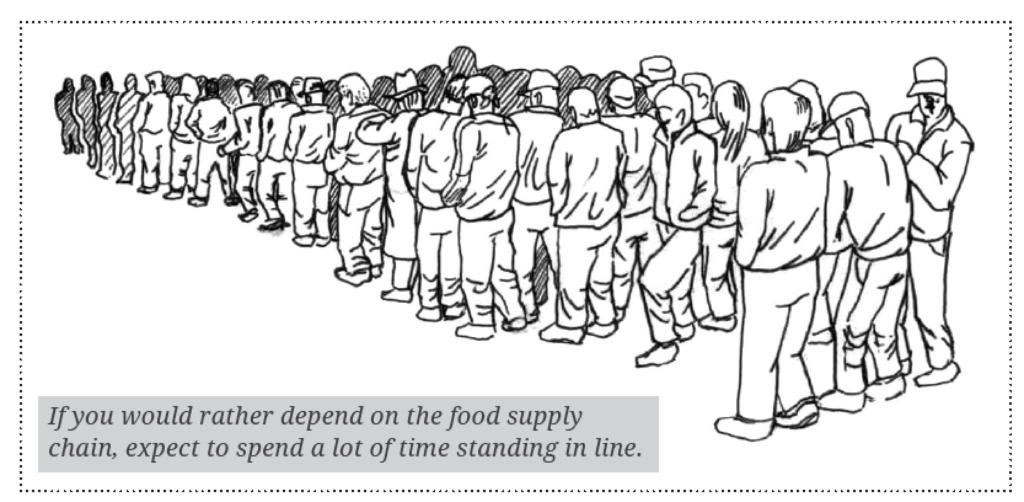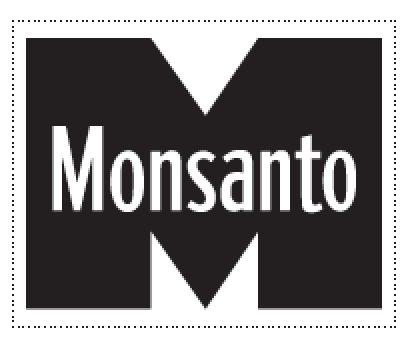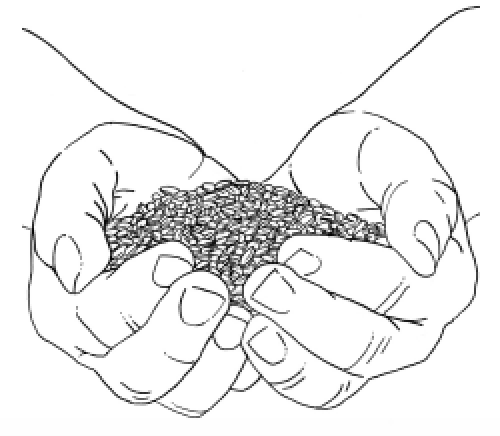If you would rather depend on the food supply chain, expect to spend a lot of time standing in line.

My personal experience with food rations was harrowing. Standing in a mile-long line for food at the crack of dawn is one thing. Finally entering the store by mid-day and finding the shelves stocked with absolutely nothing, is quite another. Please do not put yourself in the position to ever have this kind of experience. We are blessed with fertile soil and we must arm ourselves with the knowledge to use it to its fullest potential. We must learn to utilize the power of seed and we must learn to do it quickly and efficiently, before it is too late.
The only way to be fully prepared, as far as growing plants is concerned, is to practice. Initially, when beginning to plant a garden, start small and work your way up. Have a small garden plot or do container gardening if you are short on space. Make sure the seeds that are purchased are heirloom or non-genetically modified varieties. These seeds will continually produce, unlike hybrid varieties which only produce for one season.
The more you garden, the more you will learn. Eventually, you will be able to build a larger garden. When researching what types of fruits and vegetables to grow, you will need to think about what your family will need for an entire year. Keep in mind that if you are lucky enough to have livestock, you will have to grow grains and grasses for them to consume. Everything comes back to seeds.
In order to survive off the soil, you will need to become a seed expert. Expertise, however, is a step-by-step process. Before building a beautiful, bountiful garden you will have to learn the basics. You will need to learn which seed suits your needs best. You will then need to figure out how to acquire them. For the average consumerist, this sounds like an easy, linear process. It is not. It is actually quite complex and it is very easy to throw your money away on useless products.
You see, seeds are big business. Seeds are a huge business, actually. Large commodity markets such as the Chicago Mercantile Exchange trade billions of dollars-worth of seed-based commodities every single day. Even though most folks don’t think about it, almost all food and grain commodities rely on the seed industry. Seeds are the backbone of corn, wheat, soybean, vegetable oil and even pork bellies markets.
Huge agricultural companies, such as Monsanto, hold patents on almost every type of seed imaginable. In the event of a food crisis, individuals will be persecuted and even prosecuted for using such a company’s seeds without authorization.
This means that you could literally be prohibited
from feeding your family with items which you legally purchased and took possession of. This is another reason why obtaining the right seeds is so important. In fact, many folks in the know are hard at work producing or procuring, the seeds which will guarantee their families nourishment and keep them out of legal trouble.
This is why an in-depth education on seed is of such crucial importance to us all. Quality seed is not only difficult to find, it is expensive to buy. 12 lb. seed kits featuring 40 different types of seeds can retail for upwards of $500. The figures really are staggering, and highlight the severity of the situation.
The funny thing is, you don’t have to pay anything for these seeds if you are properly educated.

Unfortunately, Americans are still mired in the consumerist mindset. We want to purchase the feeling of security, when actual security can only be achieved through proper education, preparation and action.

What would you say if I told you that you could easily procure twenty to thirty pounds of organic survival seed per year for absolutely
free?

